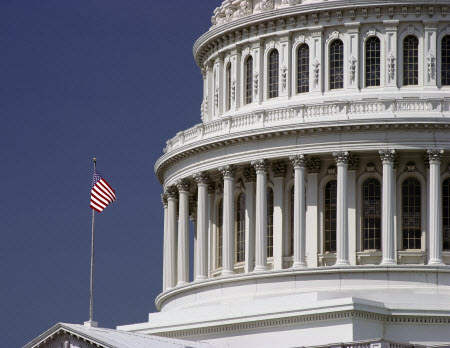Net Neutrality Compromise Remains an Elusive Prize
The smarter way to stay on top of the multichannel video marketplace. Sign up below.
You are now subscribed
Your newsletter sign-up was successful

WASHINGTON — Could a return to Title II-based internet regulations give the current president even more power over the commonwealth?
That was one of several possibilities invoked last week as both sides of the debate over the Federal Communications Commission’s network neutrality rule rollback talked about finding a way to protect both the openness of the Web, and the business model that drives investment in the networks that carry what has become an internet of everything.
Related: Why Do Democrats Want to Let Trump Violate Net Neutrality?
But that common ground will be hard to reclaim from the scorched-earth rhetoric that has characterized the fight.
Both of those sides came together last week on Capitol Hill, in a discussion hosted by the Congressional Internet Caucus, to talk about possible approaches. Try as they might, though, the conversation proved to be as much about what still separates them.
Both sides can agree on rules preventing blocking and throttling of content, even restoring them to the FCC. However, Matthew Brill, a partner at Latham & Watkins — whose clients on the net neutrality front have included NCTA-The Internet & Television Association — said the new rules, with the Federal Trade Commission overseeing broadband practices and the FCC enforcing internet service provider transparency, should be sufficient.
In any event, Brill said, the toggling back and forth between net neutrality regimes as the political control changes is not the way to go.
While Brill and representatives of public interest non-profit Public Knowledge and INCOMPAS, whose members include major edge providers, said they were willing to talk, Public Knowledge continues to push for a Congressional Review Act resolution to nullify the FCC’s December rollback of the rules, something Brill said is not helpful.
Altered States
Public Knowledge and others also continue to back state efforts to reverse the FCC decision through their own neutrality bills or executive orders mandating neutrality in ISP contracts with governors, an effort that is gaining traction in blue states also taking aim at the rule rollback through lawsuits. Brill, by contrast, said those efforts are not constructive.
Net neutrality activists want the FCC to be able to regulate broadband rates if said rates are a barrier to deployment. Chris Lewis, at Public Knowledge, said the FCC “should be empowered to look at pricing and if that is hurting broadband access.” ISPs say the FCC should not be in the business of regulating broadband rates, either through proscriptive rules or through complaint-driven rate regulation.
Currently there are two legislative efforts prompted by the rule rollback: the Congressional Review Act measure and a Republican bill, courtesy of Rep. Marsha Blackburn (R-Tenn.), who chairs the subcommittee on Communications and the Internet, that would prevent blocking and throttling, but not paid prioritization.
But again, those appear to be points of contention rather than possibilities for agreement. ISPs strongly oppose the CRA, while net neutrality activists are working feverishly to collect enough votes to pass it, which is the longest of long shots.
And while ISPs like the looks of the Blackburn bill, activists have blasted it.
Berin Szoka of think tank TechFreedom attempted to unite both sides last week against a return of Title II by invoking the fear of a too-powerful Donald Trump.
He said that a return to common carrier-based net-neutrality regulation, as the CRA would do, allows the president, rather than ISPs, to control access to the internet if he chose to exercise his war powers available on a rolling basis due to the never-ending war against terror.
The suggestion that it might take such a threat to get both sides to agree on legislation indicates that talk on the Hill and elsewhere of a bipartisan resolution to the network neutrality debate remains mostly that.
The smarter way to stay on top of the multichannel video marketplace. Sign up below.
Contributing editor John Eggerton has been an editor and/or writer on media regulation, legislation and policy for over four decades, including covering the FCC, FTC, Congress, the major media trade associations, and the federal courts. In addition to Multichannel News and Broadcasting + Cable, his work has appeared in Radio World, TV Technology, TV Fax, This Week in Consumer Electronics, Variety and the Encyclopedia Britannica.

